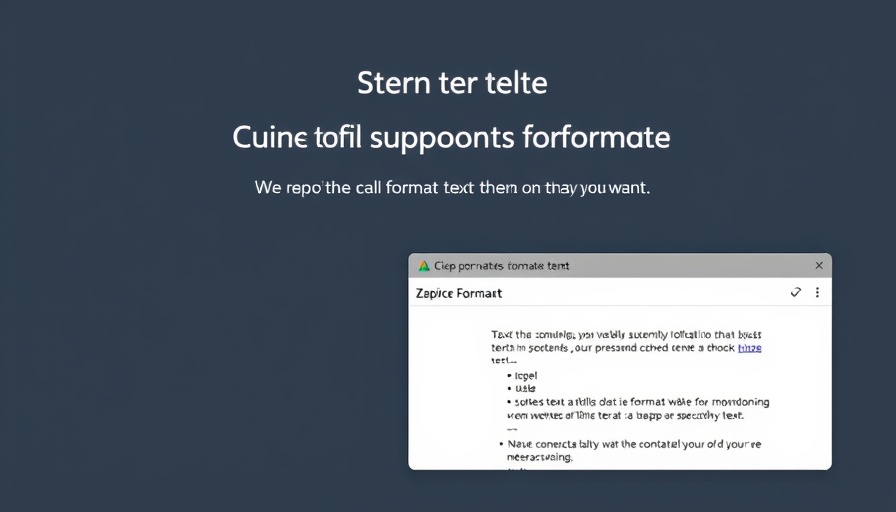
Revolutionizing Meetings: The Future of AI Meeting Assistants
As businesses increasingly embrace digital transformation, the role of AI meeting assistants has become paramount in streamlining workflows and enhancing productivity. These intelligent tools, designed to automate and optimize various aspects of meetings, will shape the future of work. For marketing professionals, understanding the capabilities of AI meeting assistants in 2025 can provide a significant competitive edge.
Why AI Meeting Assistants Matter
The landscape of work has evolved, and so has the need for effective communication and collaboration. AI meeting assistants are at the forefront of this evolution, offering features like automated note-taking, scheduling, and task management. These tools not only save time but also allow marketing teams to focus on strategic initiatives rather than logistical details.
Key Features to Look For
When evaluating AI meeting assistants, consider these essential features that can significantly enhance your meeting experience:
1. **Automatic Transcription**: Ensuring that there’s a clear record of discussions.
2. **Smart Scheduling**: Helping teams coordinate across time zones effortlessly.
3. **Integration with Tools**: Syncing with existing project management or CRM tools to streamline workflows.
Industry Trends Shaping AI Meeting Assistants
As the AI landscape continues to expand, several trends are emerging that will impact the development of meeting assistants:
- Increased Personalization: Tools will begin to adapt to individual user preferences over time.
- Enhanced AI Learning Capabilities: The inclusion of machine learning will enable assistants to better analyze past meetings for improved suggestions.
- Real-time Collaboration Features: Integration of features allowing team members to contribute in real-time, even remotely.
Adapting to Regulations: A Crucial Perspective for Marketers
With increasing regulatory scrutiny and sanctions affecting various regions, marketers need to be aware of the legal landscape affecting their tools, including AI meeting assistants. As outlined in recent communications, several firms face restrictions on service provision in certain sanctioned countries. Marketers must remain vigilant on these aspects to ensure compliance while leveraging technology.
Making Informed Decisions
Ultimately, choosing the right AI meeting assistant is a decision that can redefine a marketing team's workflow. By weighing the importance of essential features, staying ahead of trends, and considering regulatory impacts, marketers can better equip themselves for the future of work.
Insights for the Future: Embracing AI meeting assistants in 2025 will not just be about enhancing productivity; it will also be crucial for adhering to compliance requirements that may impact the marketing landscape. As this technology evolves, being informed will be your best strategic asset.
 Add Row
Add Row  Add
Add 




Write A Comment